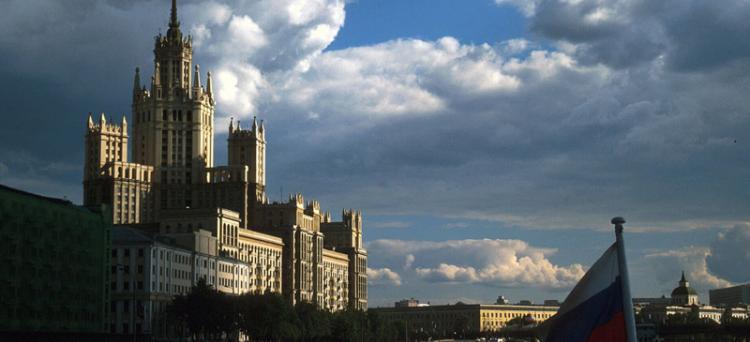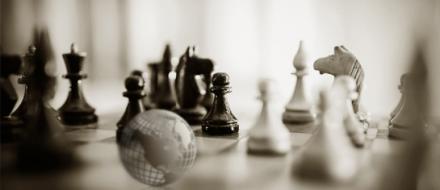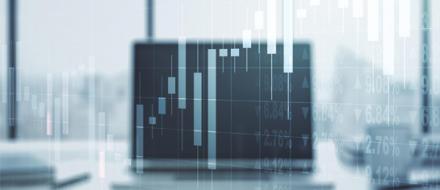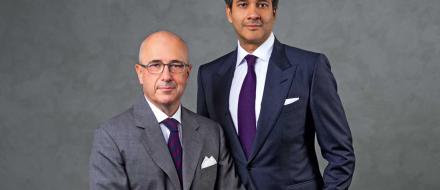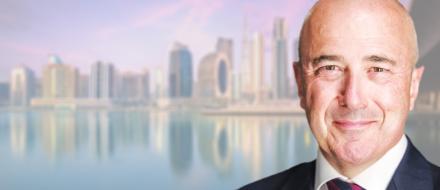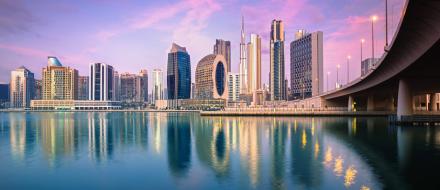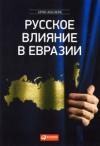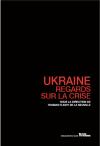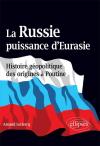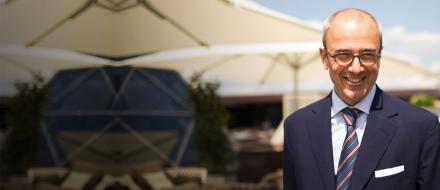Why you need to invest in Russia?
Interview with Arnaud Leclercq for The Voice of Russia (La Voix de la Russie), Linda Mills, 10 December, 2013.
Arnaud Leclercq is not a typical banker. He won reputation working in emerging and developing markets. He also specializes in geopolitics and even wrote a book “Russian Geopolitics – the Long Term Weight” that will soon be released in Russian language. What is the secret of successful business? Mr. Leclercq will share his thoughts on this and many other burning topics. Our Guest in this program is Arnaud Leclercq, Limited Partner at Lombard Odier and Head of New Markets.
You have a very fascinating biography. You’ve been traveling and working in numerous countries but for many years you actually were closely connected with Russia. If we go back in time, what first brought you to Russia?
I think it is a coincidence, as often in life. First time I really came to Russia was back in 1982 when I was in high school. I volunteered for the trip. Brezhnev was at that time leading the country and coincidentally I had been to the US as well. As that is probably a milestone in my life because the contrast was huge between the Soviet Union and the US for a young teenager. And also I discovered for the first time there were certainly lots of news and I could say the propaganda that we were perceiving from the west and also for the first time perceived that it was also propaganda on the west from the US because they were giving very different news. So, it was the first time and then I came back, I decided to come back to live here and start a business when I turned 25.
How did you decide on that?
I was at that time a lawyer and I has specialized on acquisitions and joined ventures in Central Europe. So, I thought maybe the next step is going to be Russia after Poland and Hungary, which opened their economies. And I had the equivalent in my pocket of something like 2000 dollars, not more. And I decided “ok, I will try my chance, nothing to lose”. And I left very nice and comfortable office as a lawyer in Paris. A number of my friends including my mother thought I was a bit crazy and I really enjoyed it so much. It was very special time, dangerous as well in those years but very interesting.
What was this company about? Did you help the companies to make acquisitions?
That was the plan. Of course it turned out totally differently because at that time a major client I was giving advise, it was a bank, told me “we are going to get our banking license, you must help me to get a building”. I have never done that in my life. They said they are going to need a satellite dish on the roof. I did my best, I was lucky that it worked, the bank was very generous. This bank was ING. And then they gave my name to some other very large company from Holland. Then I turned out doing something a bit different.
At some point you went back to France to continue your education.
I went back in the end of 1994 because I was extremely tired at that time from that business. I came back to France to marry and then I said maybe I should improve my education. So, that was also a consequence.
At that time did you do your PHD?
No, at that time I did an MBA, then I kept on working. PHD came much later. It came after travelling, as you said, in number of countries and living in those countries – Poland, Russia, Turkmenistan and others. And when I was in Central Asia, I was meeting diplomats and some NGOs, I was surprised what they are doing here. Then I understood that the reasons might be more geopolitical. We found out a few years later with Afghanistan next door, with pipelines and access to energy and things like that. So, I started to look into it and ultimately a few years later, I wanted to have an overview of Russian geopolitics. I didn’t find it in French or English, so very naïve I said I am going to write it. That is how it started.
Your PHD thesis was titled “Russian Geopolitics – the Long Term Weight”. Tell us about it.
The thesis was published in the format of a book in French and it was going to be in Russia next year, in January or February. What I found out is that in the long history of Russia there are some constant directions in geopolitics. There are some few changes but the speech of the president Putin even today is very much reasoning on the long term and what Russia is in its culture. These are constant ideas that you hear about the land, the religion. How does that impact people? But there are many different people here. How did it work over time together to make what is Russia today? And then of course you look at the frontiers and the map. It started from Moscow, Kiev and then the expansion. Then you discover that the merge of religions, cultures has not been so bad compared to many other countries. Then you see there is constant philosophy about the country, which was never understood by the west. And that is impacting today’s image of Russia outside of Russia.
How does it affect Russia from the political and financial point of view today?
Things have been moving of course. You could see in early 2000 the president and government were trying to get closer to the west politically and geopolitically. And then things changed because of colored revolution next door and because of some countries joining NATO. So, geopolitical identity of Russia is more lying in this direction. Russia always feels kept on the side if not rejected.
You are now with the company called Lombard Odier. Tell us about that company?
It is a very special company because it is a bank, private bank, it was the oldest bank in Geneva. It was founded in 1796. It is quite international and strictly focusing on wealth management. The bank is very discrete, quite large though. We are present in 17 countries. The assets and management that we have are 180 billion dollars. So, it is quite substantial.
Are you present in Russia?
Yes, we have an office in Russia, which is a small office, it is a liaison office. Russia is my second home. So last years were more difficult. I am talking about post-crisis, less cash has been made. There are always ups and downs. On the other hand, you have great entrepreneurs in Russia, even some of them who have privatized some companies but they have restructured them very well, not all of them but some of them have done a great job and number of others have started their business and they are brilliant people. Some of these people are selling their company and when they sell their company, they make good money and they need to invest it somewhere. And here I come. It can be merging acquisitions, minority shareholders selling to majority shareholders.
Are there any investments in Russia?
Yes to some extent. Although if you want to invest in the Russian bank, you would always do it better using Russian bank than using the Swiss bank. We do invest in Russia, for instance in some bonds because the Russian clients have good understanding of these companies and their risk. So, they are more open-minded to invest in such papers like Russian bonds.



